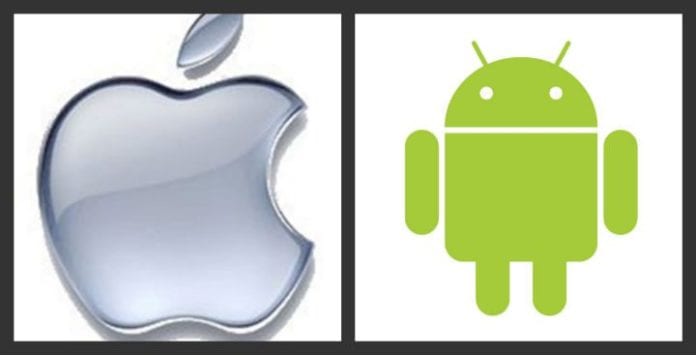When considering Apple iOS, which runs the iPhone, or Google Android, there is more than just a different operating system to consider. Apple iOS is much more secure compared with Google Android. These different operating systems account for the vast majority of phones and tablets in the market today. They look and act similar, but there are big differences in the way they are built, operate and the security they offer.
Apple iOS is a closed system. Google Android is an open system. This may describe the reason behind their approach to security. This is important for users and for corporations to understand in making their choice. To some, security is no big deal. To others, it’s everything.
Apple wants complete control over their devices, what they do and what you can do with them. This control creates a closed environment which is often frustrating when you want to do something outside their approved way of doing things. However, this closed environment is almost like a bullet-proof vest between the user and the threats that hide on the wireless Internet and app market.
Google takes the opposite approach. Their open system lets users do whatever they want. This is the kind of freedom many want for themselves. Unfortunately, this also creates a risky environment for the user since you are not protected from the many threats of the Internet and wireless app market.
Google Android vs. Apple iOS is freedom vs. security
The best way to understand this is simple. Think of it like your house. If your house is in a sub-division with rules and regulations, they are often a pain in the neck to you, restricting what you can do on your own property. However, that same thing is also something that protects you from a neighbor letting their grass grow too high, leaving a boat in the driveway or painting their house bright pink.
If your house is not in a subdivision, there are no neighborhood rules and you have the freedom to do whatever you want. That means you can own three old cars and work on them in the front yard. However, this freedom also let’s your neighbors do whatever they want as well. That’s why the eye-sores are most often not in sub-divisions. Often times this freedom creates all sorts of problems, and there are no solutions.
That’s why making the right choice up front is key. Like it or not, unless you are the neighbor with cars on the side lot, you would probably prefer a neighborhood with rules and regulations. They may be a pain in the neck to your freedom, but they do offer protection for the beauty of the neighborhood and for your home value. So, bottom line they are typically better unless you don’t have any neighbors to worry about.
Another item, a quick look at the numbers show Android users face more threats than iOS users. This is a much bigger threat from malware and online threats for both consumers and business users.
Android vs. iOS is like Microsoft Windows vs. Apple MacBook
Android and iOS account for roughly 94% of the worldwide smartphone market. Other operating systems, all combined just account for roughly 6 percent. The way I think about it is simple. The computer OS market was owned by Microsoft Windows with Apple in a strong second place position. Microsoft Windows is much more open and susceptible to more threats. Apple operating system is a closed system and therefore much more secure.
This is the same with mobile, except the two major players are Google Android and Apple iPhone. Google Android is the larger global player, but like Microsoft, they are under attack more often and are therefore more vulnerable. That means Android offers more freedom to the user, but also more security risks as well.
So, the choice is yours. The choice between Apple iOS with security and limited freedom, or Google Android with total freedom and lower security or higher risk. Too bad both Apple and Google can’t create a system that offers both. That would become the real winner almost overnight. But that may never happen. So once again, today the choice is yours.

